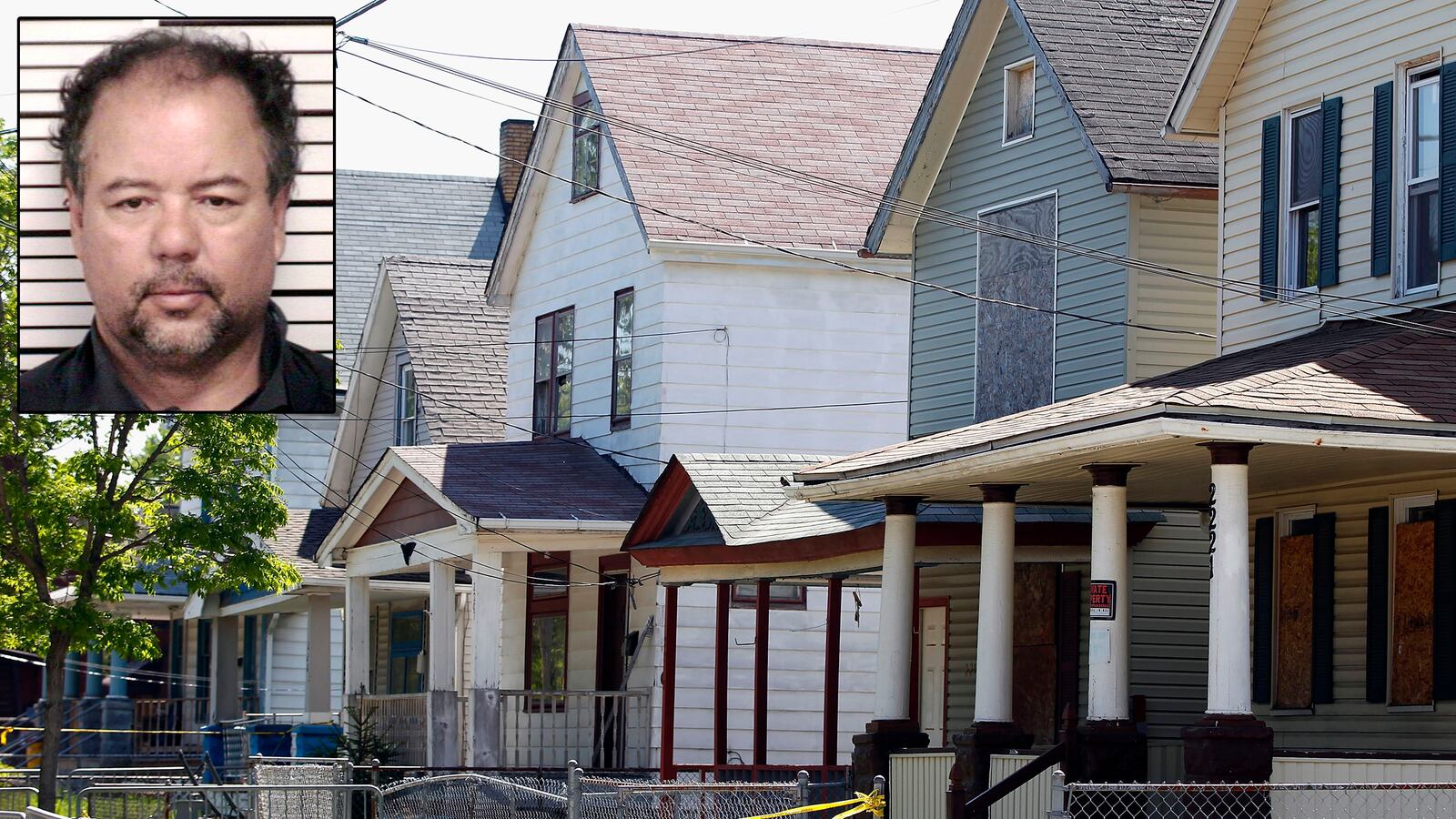Not everyone in Cleveland was surprised to see Ariel Castro outed as a villain. Certainly not his next-door neighbor.

“We are archenemies,” says Doug Parker, who has owned the house next door to the alleged kidnapper and rapist for nearly 20 years. In an interview Thursday afternoon, Parker, 47, called his relationship with Castro a “Hatfield-McCoy thing,” referring to the notorious combatants of the legendary family beef.
“He needs to dominate, and he does it underhandedly,” Parker says. “He took my trash cans from the back of the house and told me I needed to wash them. I had been there three days.”
That was just the start of decades of bad blood. These days, Parker doesn’t live in the home, using it as a rental property instead. One of his current tenants is Charles Ramsey, the man who achieved hero status for helping victim Amanda Berry escape Castro’s home after nearly 10 years of captivity.
(Aside on Ramsey: “He’s not putting up a front—that’s how he is. You don’t need Red Bull or coffee after you talk to him. His mouth is like an Uzi.”)
But back when Parker himself lived in the house, from 1993 to 1996, he would butt heads with Castro constantly. At one point, Parker recalls, Castro verbally assaulted his wife while Parker was at work.
“I got home and she told me he was on his porch, calling her a ‘bitch.’ That was it. I hit the roof.”
He’s not exactly proud of how he handled it—he grabbed the handgun he kept for protection and knocked on Castro’s door brandishing the weapon. “I told him if he ever talked to her again, we were going to have big problems,” Parker says. “You mess with my family? He never talked to her again.”
Still, Parker’s daughter DeaAna sometimes played with Castro’s daughter Emily, who was a year older.
But never inside the Castro home.
“That was a locked-down place, even then, and we’re talking the mid-90s,” Parker remembers. When you knocked on the door, you’d hear ‘click, click, click,’ the series of locks being undone. He’s always been like that.”
In more recent years, Parker would come over in the heat of the summer to work on his rental house, on Seymour Avenue on Cleveland’s west side. As sweat poured from his brow, he would notice that next door was buttoned down—windows tightly sealed, no air conditioning, all the blinds shut. And he knew Castro was in there because his car was parked out front.
Cleveland police asserted this week that they had been called to Castro’s house on two occasions since Castro has lived there. Cleveland Public Safety Director Marty Flask told reporters that a review of records found that Castro reported a fight outside his house at one point and that police also paid a visit as part of an investigation into the case of a child whom Castro had left on a school bus.
But Parker says the police have been to the house more than they claim. For one, he says, he called the police in May 1996 when Castro pulled fence posts out of the ground and rolled up a chain link fence that ran between the two properties.
“He did it while I was at work, so I couldn’t stop him,” Parker says.
The posts had been buried 18 inches, leaving holes that DeaAna, 6 years old at the time, tripped over while playing and injured herself. “The cops came, we talked, and one of them suggested I go to court on this,” Parker says. “And that’s what I did.”
He was awarded $900 in damages and Castro was ordered to put the fence back up.
Over the next 17 years, the two saw each other but never spoke. Like most of the homes on Seymour, Parker’s rental house was built in the late 1800s and required a bit of upkeep. Just three weeks ago, Parker saw Castro outside as the two carried out home maintenance chores. They ignored each other.
Then, on Monday, Parker heard a news flash on the radio in his pickup truck that Amanda Berry and Gina DeJesus had been found after being missing for almost a decade, and they were pulled from a house on Seymour. (Michelle Knight, who had also been missing but whose case was less well known, was also found alive in Castro’s home.)
“I called my mom and told her they found the girls on Seymour, and I thought, This is interesting,” Parker recalls.
Parker got home and turned on the television to follow the story—only to see one of his own tenants, Ramsey, hair askew, spilling off a series of excited expletives and talking about calling 911. Ramsey has rented a room in the house for a year, paying $75 a week.
“I thought, Things make a lot more sense now,” Parker says—the locks, the nasty comments to his wife, even the loud music, which would start all of a sudden at any time of day, play for 10 minutes, then stop.
As for how Castro allegedly kept three girls hostage under the noses of a neighborhood, Parker said it’s simple.
“The house on the other side of him was empty for years, and the house on the other side of mine was also empty a lot. So he could have made some noise and there wouldn’t be a lot of people to notice.”
His “archenemy” now faces life in prison. Parker doesn’t feel good about that, given the suffering that he has incurred to get to that point. But he’s all too familiar with Castro’s dark side.
“He’s the reason I moved from that house, and he’s also the reason I kept it,” Parker said. “I know he was always upset around me because I stood up to him.”





